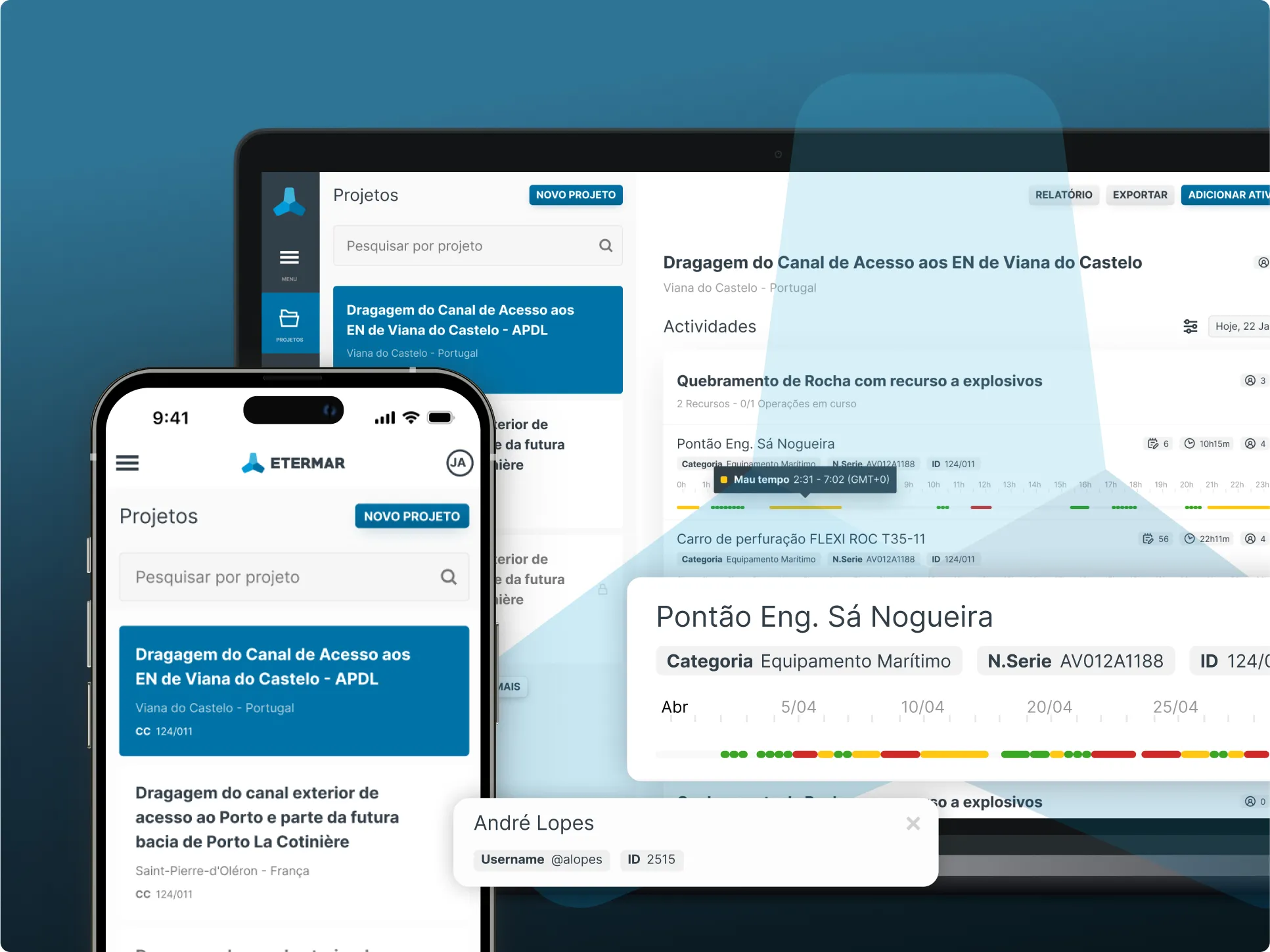
Optimizing marine projects with standardized data collection on land and sea operations
01 Challenge
Paper-based processes caused delays, rework, and limited real-time visibility across remote operations.
00 Solution
A web-based platform designed for field use, with offline logging, auto-sync, and real-time dashboards, fully configurable by Etermar’s teams.
00 Services
Research & Discovery
UX/UI Design
End-to-End Development
04 Outcomes
Centralized operations, faster decisions, structured data, and no more manual transcription.
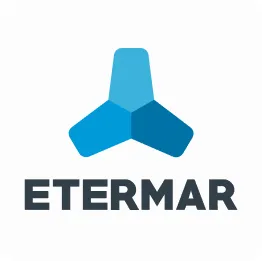
Etermar is an international leader in marine and hydraulic construction with over 50 years of expertise.
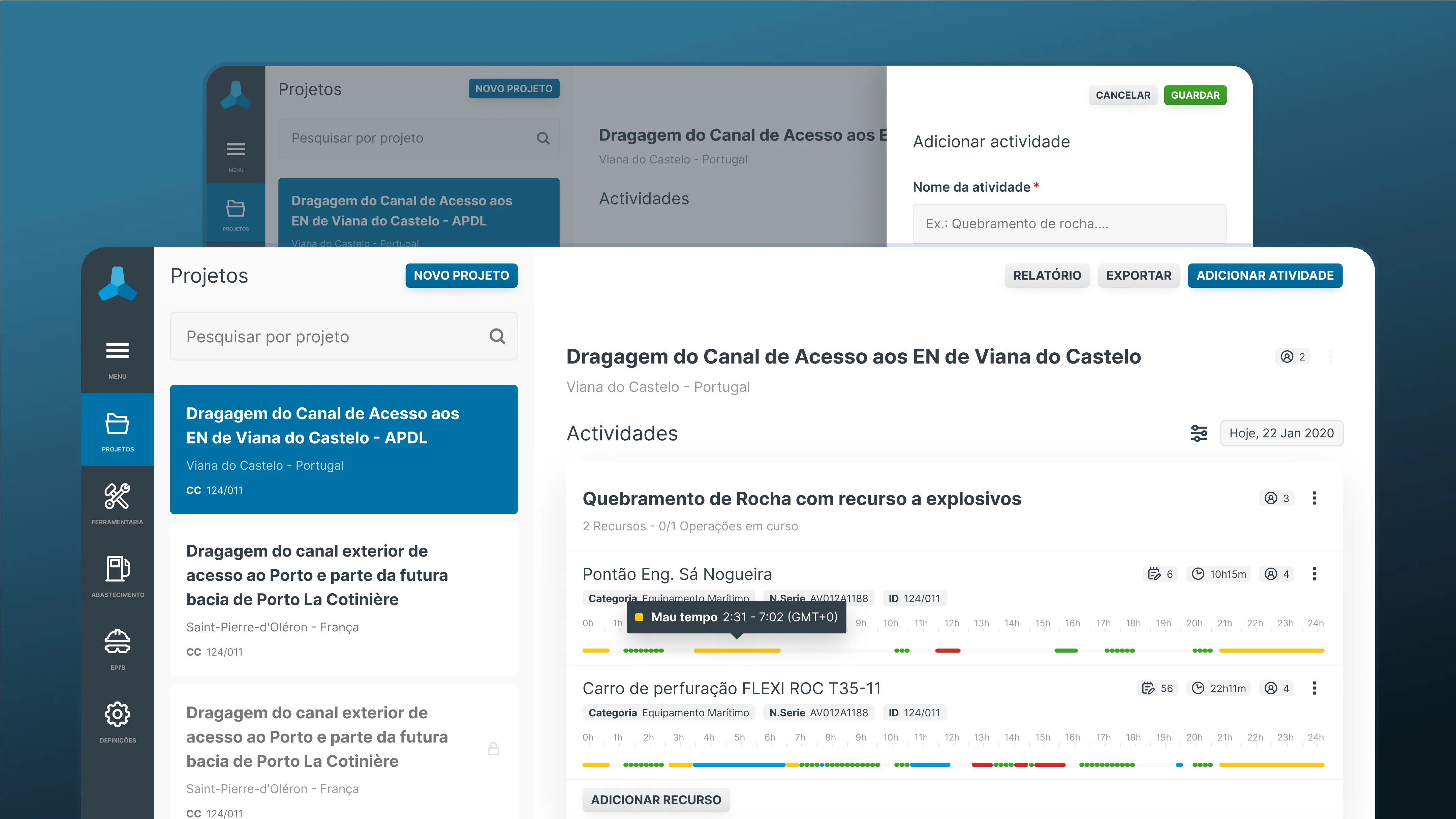
Etermar sought a transformative solution to expedite data collection, enhance efficiency, and enable real-time analysis
Etermar is an international marine construction company that works on complex projects such as dredging, offshore drilling, and underwater infrastructure. Its teams operate in demanding environments where clarity, speed, and operational accuracy matter.
Until recently, data from these projects was still being recorded on paper. Field operators filled out logs by hand, and supervisors spent hours each evening transcribing them into spreadsheets. When leadership saw a report, it was often too late to take meaningful action.
Untile partnered with Etermar to design a digital platform that captured their operations as they happened—in real time, even offline. The result is faster decisions, cleaner data, and a flexible system to grow with their projects.
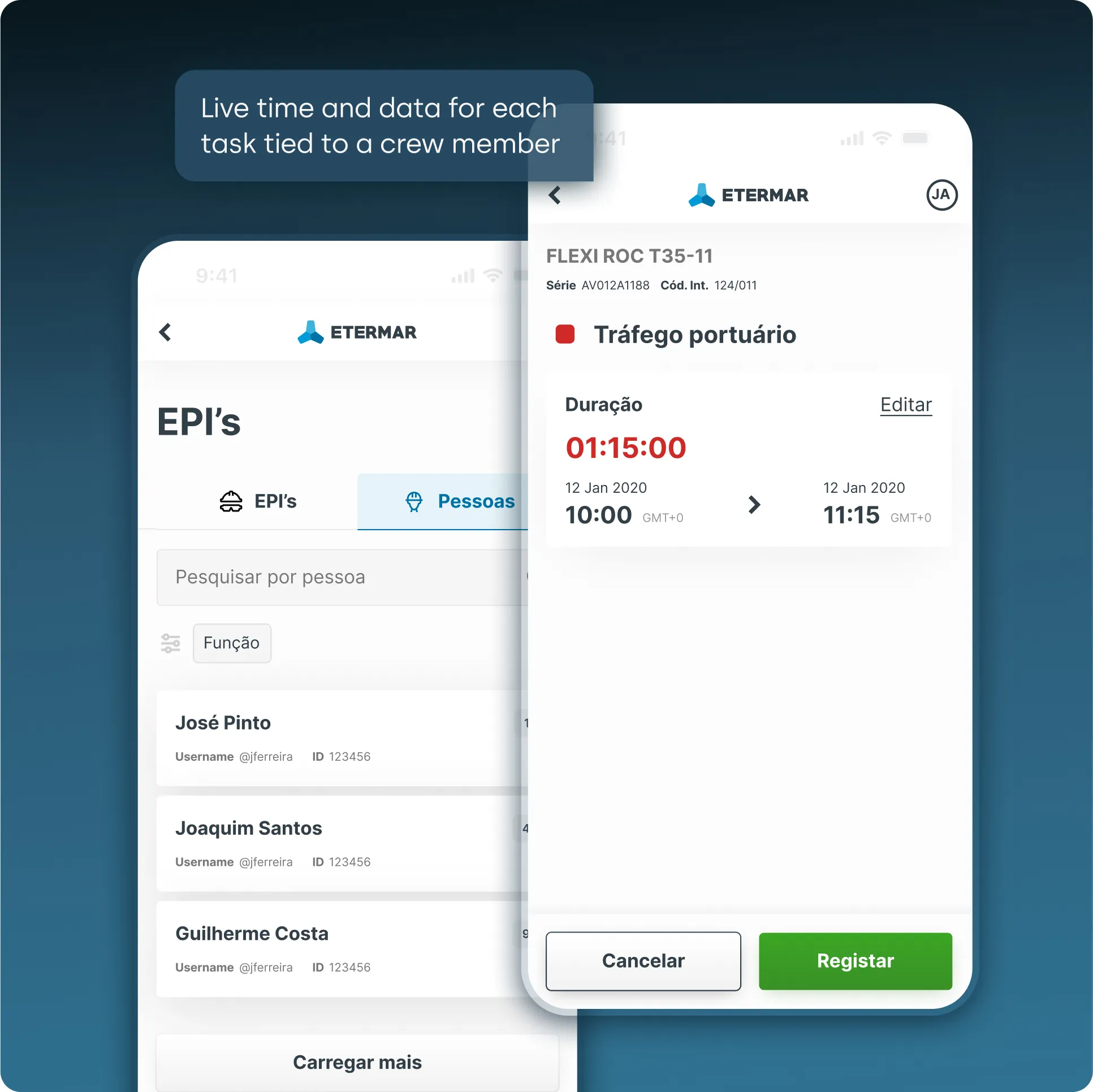
Scaling up exposed critical gaps in data collection and decision-making
Etermar’s challenge wasn’t poor management — it was scale.
Their teams executed demanding work, but the process of capturing and using data didn’t match the speed of the job. Paper logs had to be retyped, and important details were often lost or delayed. With multiple sites running their own spreadsheets, there was no way to get a unified view of what was happening.
What needed to change:
• Hours of transcription each day for every site
• Data is often delayed by a complete shift or moreInconsistent formats across projects, preventing comparison
• No real-time visibility for managers or leadership
• No system for tracking responsibility for fines, tools, or resource allocation
The goal wasn’t just a paperless system. It was a platform that could match how work happens in the field, and make that data useful without adding extra burden.
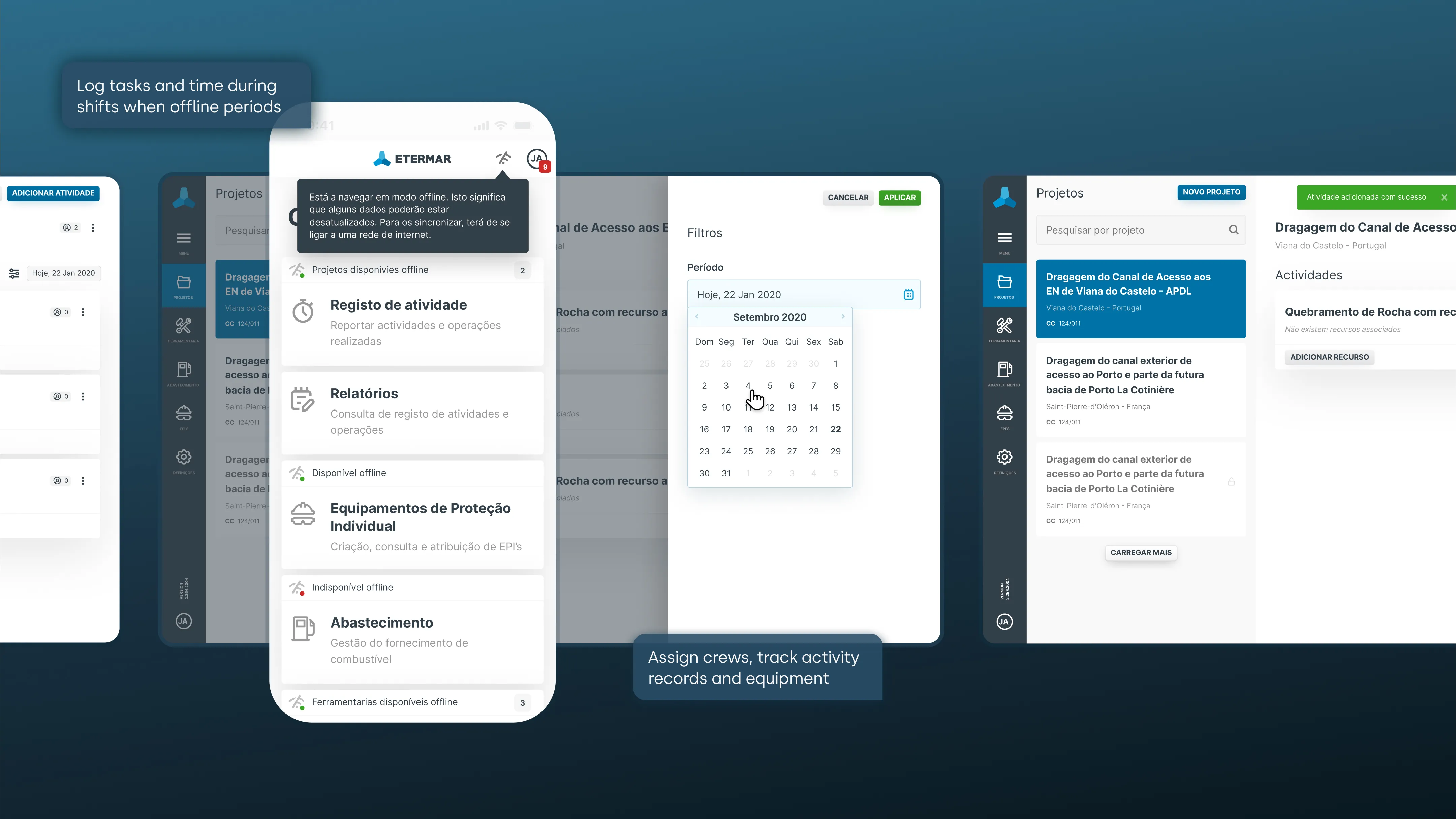
Building a field-ready platform to capture data in real time and cut manual work
We built a system designed for field conditions, but structured for long-term visibility.The platform is a web app that works offline. Operators use it during the shift to log tasks, assign crews, track equipment, and record handoffs. When the device reconnects, data syncs automatically to a central dashboard.
Key features
• Real-time data entry for field operations
• Offline functionality with seamless sync
• Configurable forms and workflows
• Visual tools for assigning workers and tracking timelines
• Modular system covering machinery, labor, fuel, PPE, tools, and vehicles
• Structured data model linking all records to projects, cost centers, and activities
• Open API for integrations with ERP, accounting, and HR systems
Where the system made the most significant impact
Fuel tracking, made simple
Fuel was stored in portable 1,000-liter tanks and delivered directly to equipment in the field. Every refill had to be tied to a machine, operator, and usage stats. We designed a process that supported those variations while handling counter resets and reading errors.
Crew assignments that reflect real work
Tasks shift during the day, and crews split up, rejoin, or change priorities. Foremen needed a way to log all that quickly. We built a visual timeline tool so they could assign workers, track changes, and correct exceptions easily.
Tool and PPE control with accountability
Each worker has a log of what equipment and protective gear they’ve been issued, who provided it, and when. That reduced loss and overstocking while improving traceability.
Vehicle responsibility clarified
When drivers change, the system records the handoff. Fines are no longer debated. The log shows who was responsible and when.
Configurable by Etermar
Using a no-code form builder, Etermar can create new templates, update rules, or adapt to new projects without needing development support.
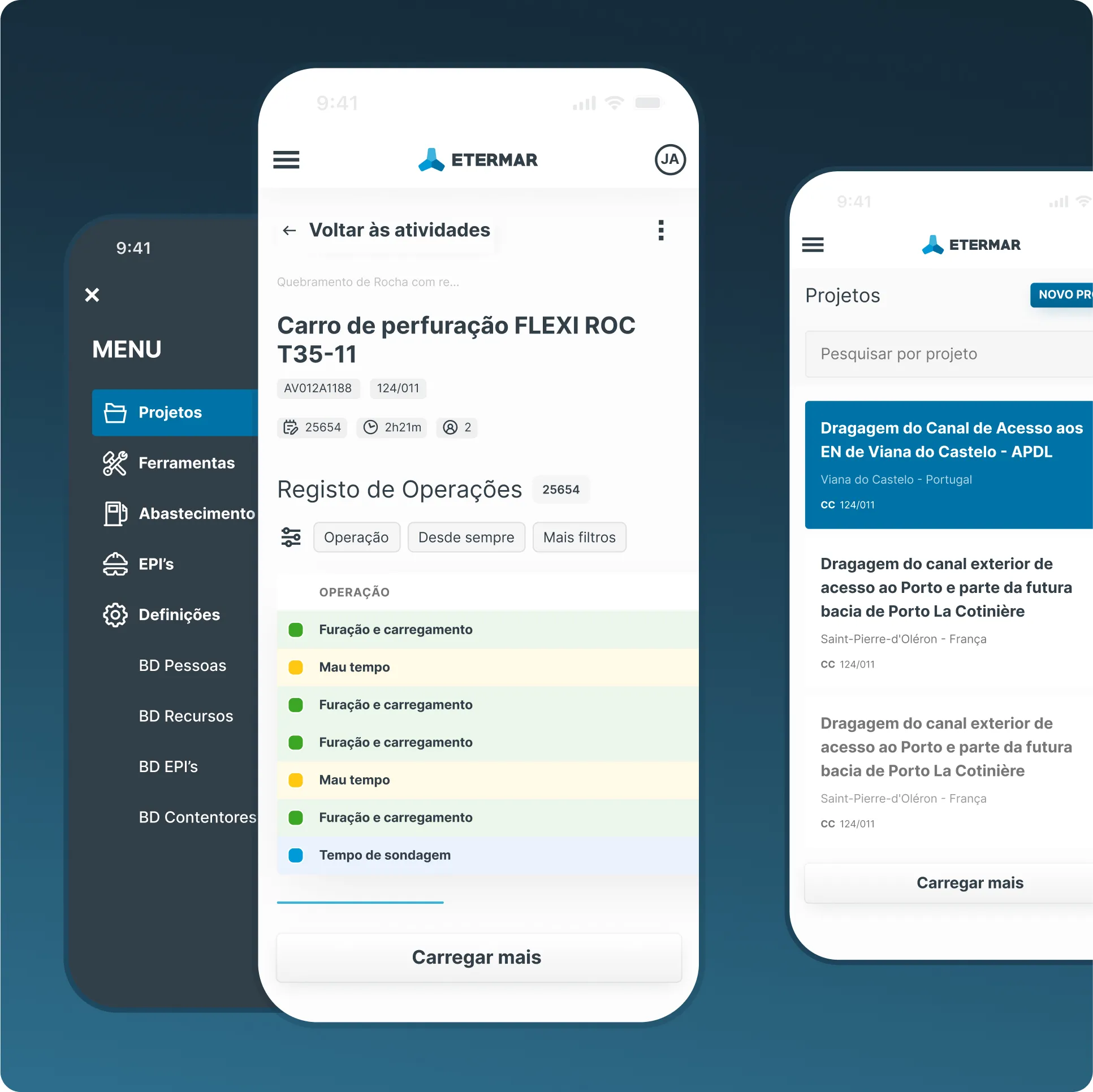
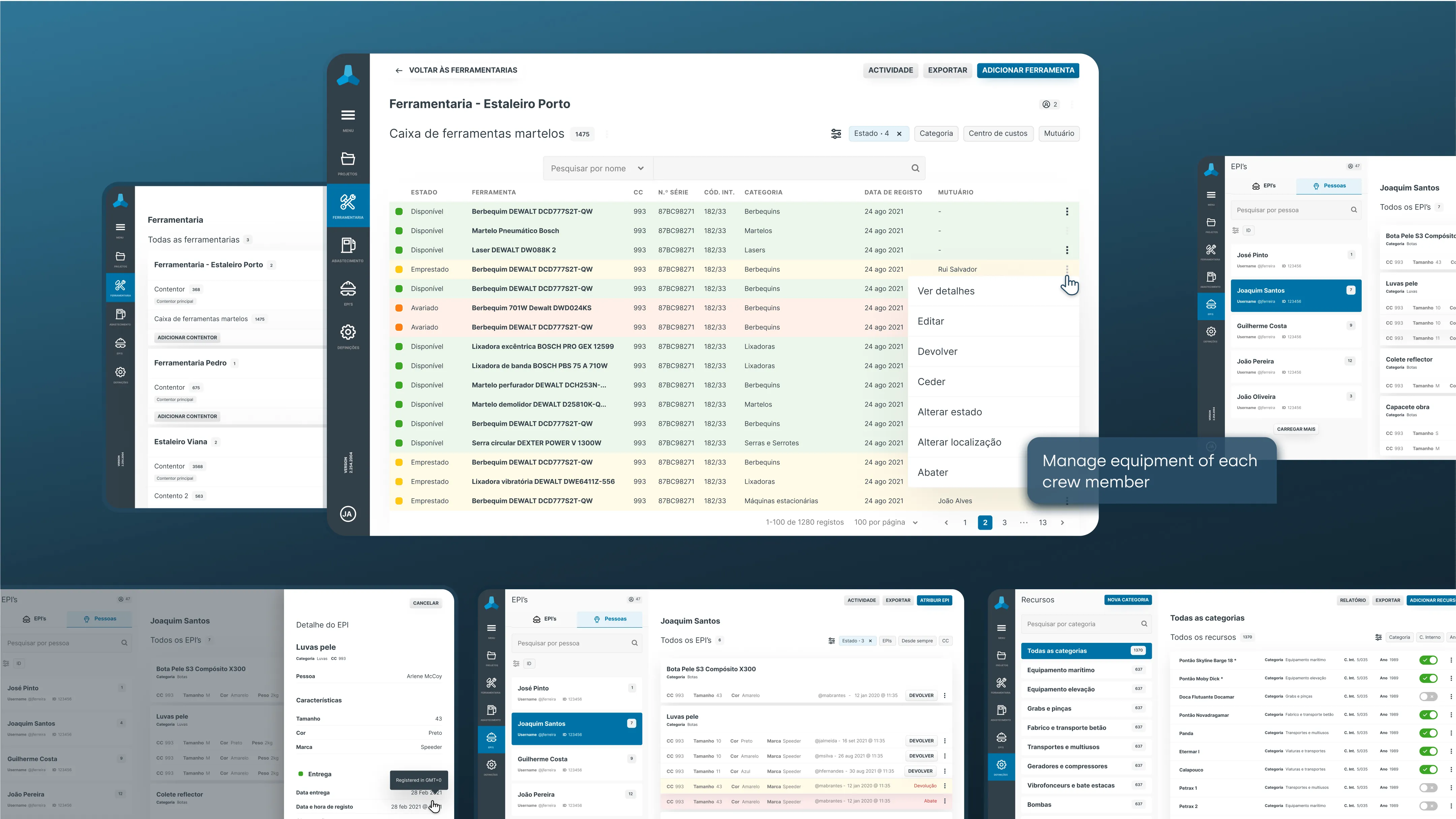
Creating a way to simplify hundreds of daily data recordings, removing unnecessary processing effort
We started on-site, not on screens.
Before writing a single line of code, we sat with project managers and field crews to understand how work was done. We mapped out every operational layer—tools, tasks, timelines, exceptions—and shaped our system around that.
Delivery process:
• Field discovery workshops with real users
• Prototyping and testing with supervisors and site managers
• Design optimized for rugged use: tablets, sunlight, gloves
• Architecture prepared for long-term modular expansion
• Close feedback loop throughout, ensuring adoption and alignment
We didn’t change the way Etermar works, but we made it faster, clearer, and easier to track.

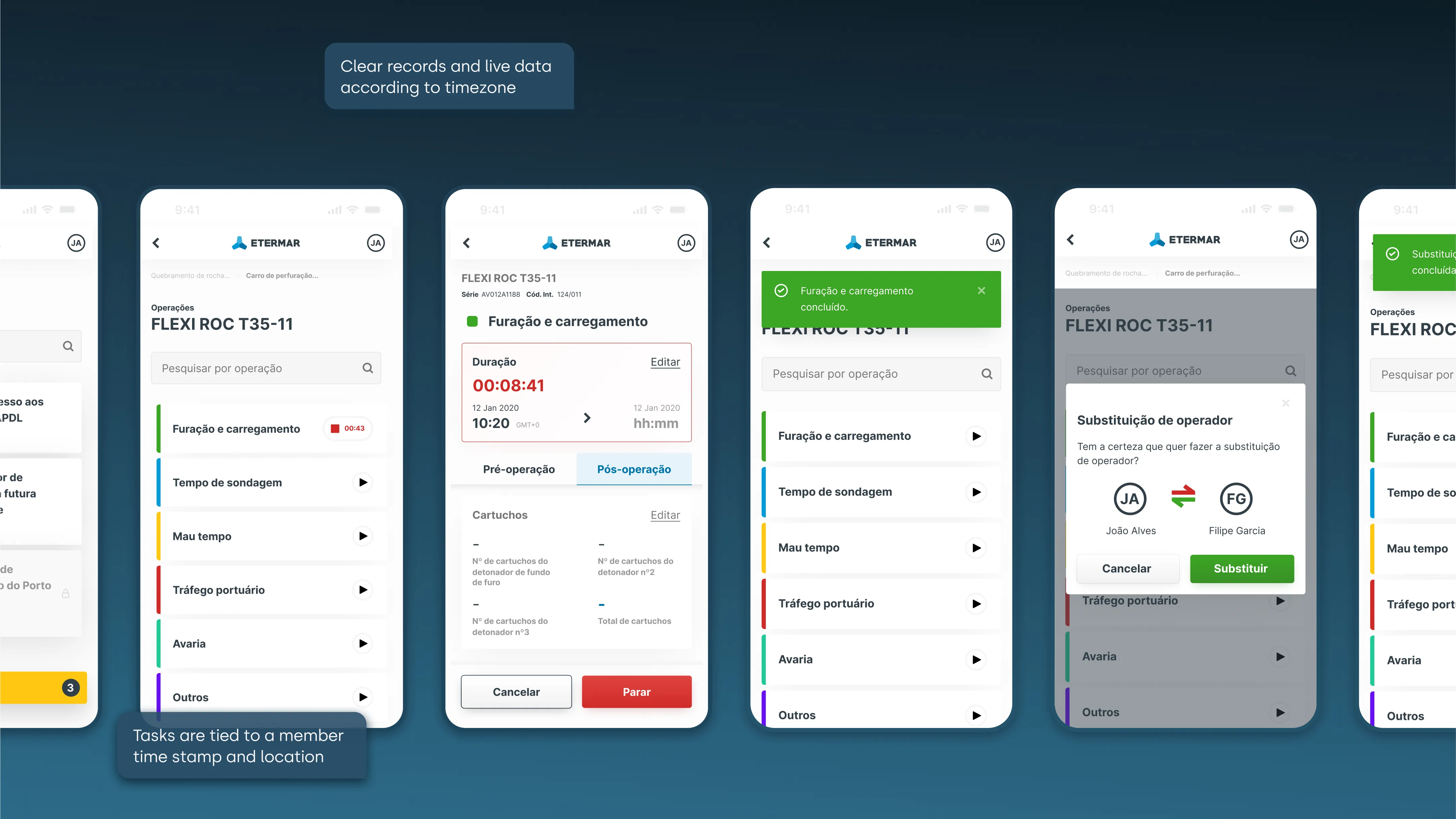
Giving full freedom to Etermar through a tailored solution
Time back to managers:
Every site lead now saves over two hours per day. That time is spent managing the work, not cleaning up paperwork.
Faster decisions, less guesswork:
Live data allows immediate course correction, helping avoid delays and improving the use of machinery and crews.
Data with clarity:
There will be no more missed entries or manual copy errors. Every log is clean, structured, and traceable.
Stronger accountability:
Each action is tied to a person, timestamp, and location, creating a clear record across operations.
Built to evolve:
New projects, tools, and reporting needs don’t require new code. Etermar configures what they need and when they need it.
What’s next

A faster, smarter, and more user-centric way to access everyday benefits with MyTicket

